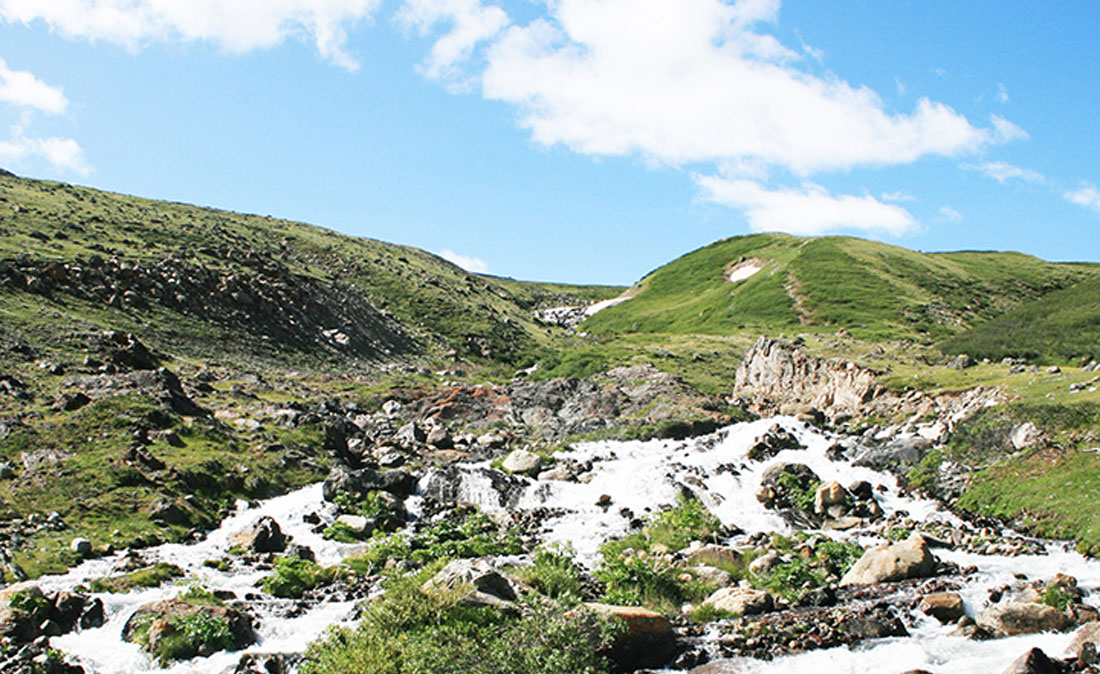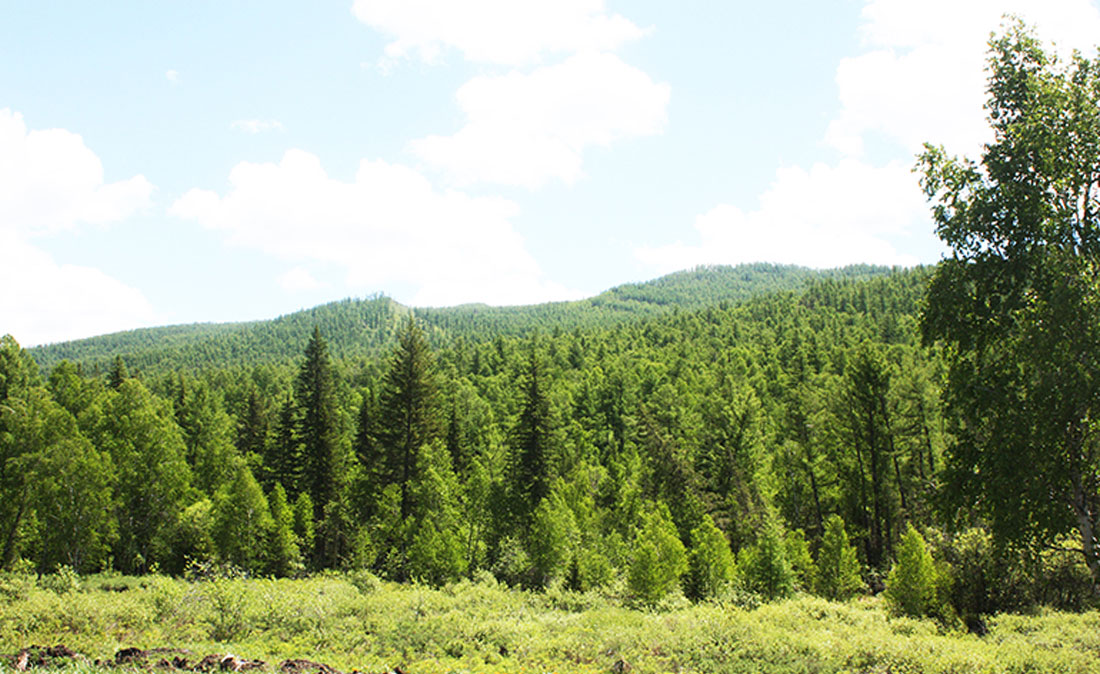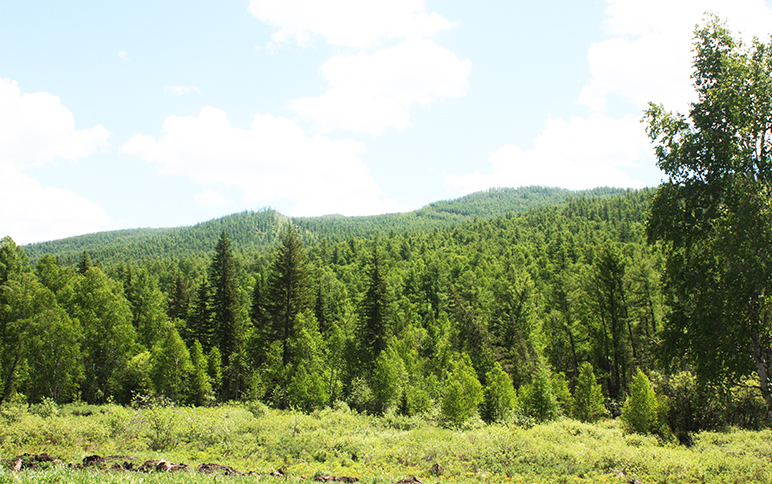Biodiversity and Adaptation of Key Forest Ecosystems to Climate Change II Program


OBJECTIVE
The project aims to:
- support the stakeholders of the Mongolian forestry sector to adopt proven concepts for the conservation and sustainable use of forest ecosystems and its biodiversity while considering the impacts of climate change
PROJECT DESCRIPTION
The globally significant biodiversity of Mongolia is under serious threat due to unsustainable and unregulated use. The negative impacts of climate change, which are nowadays already noticeable in Mongolia, furthermore, aggravate the situation. The reasons include: besides outdated management principles, various knowledge and capacity shortcomings, centralized management principles and last but not least, the rural poverty in combination with the common lack of knowledge about sustainable practices among the rural population of the forested regions (Provinces). As key ecosystems and as providers of goods and services of Mongolia, the forests that are concentrated in the northern parts of the country are very important. Since 2012, the Mongolian Government has been following the overarching principles of the Green Development Policy that prescribes a sustainable and climate sensitive development. In line with this shift in strategic focus, the framework to promote sustainable forest management as means to stabilize forest ecosystems and to use it especially for the benefit of the rural population has significantly improved.
The objective of the programme is “the stakeholders of the Mongolian forestry sector adopt proven concepts for the conservation and sustainable use of forest ecosystems and its biodiversity while considering the impacts of climate change”.
Fields of intervention include:
(1) development of favourable legal-administrative and institutional framework as a leverage for the national forest policy and Green Development,
(2) development of tools and procedures that operationalise the concept of sustainable forest management for decision makers and forestry practitioners,
(3) capacity development of the staff of the main stakeholders of the Mongolian forestry sector
SUCCESS STORIES
 In Mongolia, the concept of forest management has been focused on conservation and protection for many years. Since adopting the Green Development Policy and becoming the member country of the UN-REDD Programme, the forest management system in Mongolia is shifting towards sustainable utilization and sustainable forest management. Yet, it is a new concept; there is a strong need for technical support and capacity building. Therefore, our programme supported to establish the Mongolian Sustainable Forest Management Council (MSFMC) NGO which consists of representatives from the relevant governmental, private organisations and academia, with the purpose to support sustainable forest management scheme in Mongolia. Within the MSFMC NGO, the forest certification working group was created in order to develop the certification and accreditation criteria and standards for forest enterprises and their products based on the international best practices. The MSFMC NGO is in well operation and building its capacity with the continual support through the international consultancy services and a local subsidy provided by the GIZ Programme, Biodiversity and Adaptation of Key Forest Ecosystems to Climate Change II.
In Mongolia, the concept of forest management has been focused on conservation and protection for many years. Since adopting the Green Development Policy and becoming the member country of the UN-REDD Programme, the forest management system in Mongolia is shifting towards sustainable utilization and sustainable forest management. Yet, it is a new concept; there is a strong need for technical support and capacity building. Therefore, our programme supported to establish the Mongolian Sustainable Forest Management Council (MSFMC) NGO which consists of representatives from the relevant governmental, private organisations and academia, with the purpose to support sustainable forest management scheme in Mongolia. Within the MSFMC NGO, the forest certification working group was created in order to develop the certification and accreditation criteria and standards for forest enterprises and their products based on the international best practices. The MSFMC NGO is in well operation and building its capacity with the continual support through the international consultancy services and a local subsidy provided by the GIZ Programme, Biodiversity and Adaptation of Key Forest Ecosystems to Climate Change II.
 In regard to our outcome C, the Integrated Vocational Education, we have achieved great goals. We have provided the quality of forestry tools, equipment, protected uniforms, tools for making wooden products, the fully equipped tool repair shop and the last but not least the teaching and training concepts and materials to the our partners, 4 Vocational Training and Production Centres (VTPCs) located in four different provinces. In addition, through our programme implementation, the total 12 forestry teachers from our partner VTPCs attended the three month apprentice training programme on dual education system, in Germany. In 2015, we included 16 professionals from Ministry, local governments, forest units, and VTPCs in the Study Tour in Germany and five teachers participated in the intensive training conducted by Hessen Forst Company in Germany as well. The learnt knowledge, techniques including the operational safety conduct, of the forestry trainers and students of the VTPCs were demonstrated and practiced at the school forest. The most importantly with the modern technology and safe tools, the female forestry teachers and students are empowered more than ever before to pursue their future as foresters.
In regard to our outcome C, the Integrated Vocational Education, we have achieved great goals. We have provided the quality of forestry tools, equipment, protected uniforms, tools for making wooden products, the fully equipped tool repair shop and the last but not least the teaching and training concepts and materials to the our partners, 4 Vocational Training and Production Centres (VTPCs) located in four different provinces. In addition, through our programme implementation, the total 12 forestry teachers from our partner VTPCs attended the three month apprentice training programme on dual education system, in Germany. In 2015, we included 16 professionals from Ministry, local governments, forest units, and VTPCs in the Study Tour in Germany and five teachers participated in the intensive training conducted by Hessen Forst Company in Germany as well. The learnt knowledge, techniques including the operational safety conduct, of the forestry trainers and students of the VTPCs were demonstrated and practiced at the school forest. The most importantly with the modern technology and safe tools, the female forestry teachers and students are empowered more than ever before to pursue their future as foresters.
PUBLICATIONS
COUNTRY
Mongolia
DURATION
Mar 2015 - Dec 2018
Commission Agency
BMZ

